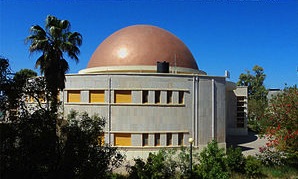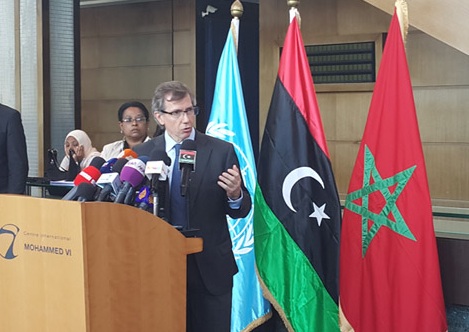By Libya Herald reporter.

Beida, 19 April 2015:
Sitting in his office in the old Kingdom of Libya parliament building in Beida, Ali . . .[restrict]Tarhouni, president of the Constitution Drafting Assembly (CDA) ,wears a scarf tied around his neck. He is worried about the cold spring. But it is the least of his fears. The others are far heavier: political feuds, violence, pressure, lack of funding.
The Benghazi-rooted Libyan explains the CDA works from inside.
The good news first. The Constitution Drafting Assembly (CDA) should be able to submit a full constitutional draft “in less than four months”, according to Ali Tarhuni. A specific date has been chosen by the members, he says, but they have decided not to publicise it yet. “In about two or three weeks”, new texts from CDA will be published, says Tarhouni. The Assembly is currently divided into eight committees in charge of writing the 12-chapter draft constitution.
Long delay, small steps
Originally, the CDA was suuposed to have written the draft by 24 December 2014, the anniversary of Libyan independence, but it failed. It was only In December that the CDA had the initial proposals, Tarhouni says.
Members, he says, reject the notion of a centralised State but have not worked out what decentralisation will entail, want a president but will have not decided if he should be directly elected or appointed by the legislature, and want Sharia law to be in the constitution but the source of the law, and maybe not the only source.
The CDA president agrees that much has still to be done but stresses that more than 350 civil society delegations have already responded to specific proposals from the CDA.
“Writing a constitution in the mist of war”
Since 7 March, the CDA has started its final deliberations. The eight committees have to present their chapters to the whole assembly. The text has to be approved by “two-third plus one majority” of the members and with no veto from members representing the ethnic minorities, such as Tuaregs and Tebus. Moreover, although the CDA can meet everywhere inside or outside the country, all the debates and all the votes have to take place in Libya.
Ali Tarhouni blames the slow process CDA on the current political and security situation. “Writing a constitution in the mist of war, in a divided country, is very, very difficult. Every viewpoint, every part of Libya, is represented in the CDA but we are still intact, still all together,” he points out.
“All together” may be a too strong word. First, because of their boycott, the Amazigh have no members in the assembly and, because of violence, Derna voters were no able to vote. As a result the 60-member assembly is a 56-member one, although the CDA has had regular contacts with Amazigh community).
Secondly, Mohamed Balrouin, a member from Misrata, has been boycotting the sessions and Mohamed al-Sari, a member from Zliten, has not been in Beida for months because, as a pro Libyan Dawn activist, he fears for his life in Cyrenaica. Finally, members are regularly out of the country to keep safe. As a result, Ali Tarhuni admits that about 49 members attend the session. “But the quorum of 41 members have always been reached”, he adds enthusiastically, taking confor from the fact that it is a lot higher, percentage wise than the quorums in the House of Representatives of the General National Congress.
Neutrality of the CDA
The Assembly has decided to have no official relations with either the Tripoli-based Libya Dawn “government” or government appointed by the Tobruk-based House of Representatives, even though it is in the same town of Beida. It does not maintain contacts with the UN either. The neutrality has not prevented the ot from being targeted. A car-bomb attack occurred in June 2014 and members have faced personal threats.
Ali Tarhouni complains that logistic and financial problem have considerably slowed down the CDA’s work. Salaries have not been paid for six months – for all the staff, not just the members. Power and phone line cuts have been all too regular. Moreover, the assembly has received only LD 50 million budget from the GNC when it started its work. “We would have liked an aircraft to travel abroad and meet constitutional experts. We would have liked our own media to explain to Libyans what a constitution is. We would have liked to organise regular opnion polls in social media to know what the Libyans wanted”, Ali Tarhouni lists.
“CDA doesn’t deserve the Parliament building”
All these challenges cut little ice with Ali Hussein Mohamed. The head of Beida municipality, who once welcomed warmly the CDA when they settled in April 2013, has become a fierce opponent.
“The CDA’s term of office expired in December and they haven’t issue a single article. They are just interested in getting their salaries and traveling abroad”, he claims.
He is particularly opposed to Ali Tarhouni: “He is not the right man in the right place,” he says. As for the assembly itself: “It doesn’t deserve to be hosted in the Parliament building.”
Oddly it is not his opposition that undermines the CDA. In Morocco, the UN and representatives from the HoR and GNC are working on what is effectively an alternative constitution and which, if agreed, could easily sideline the assembly’s work.







